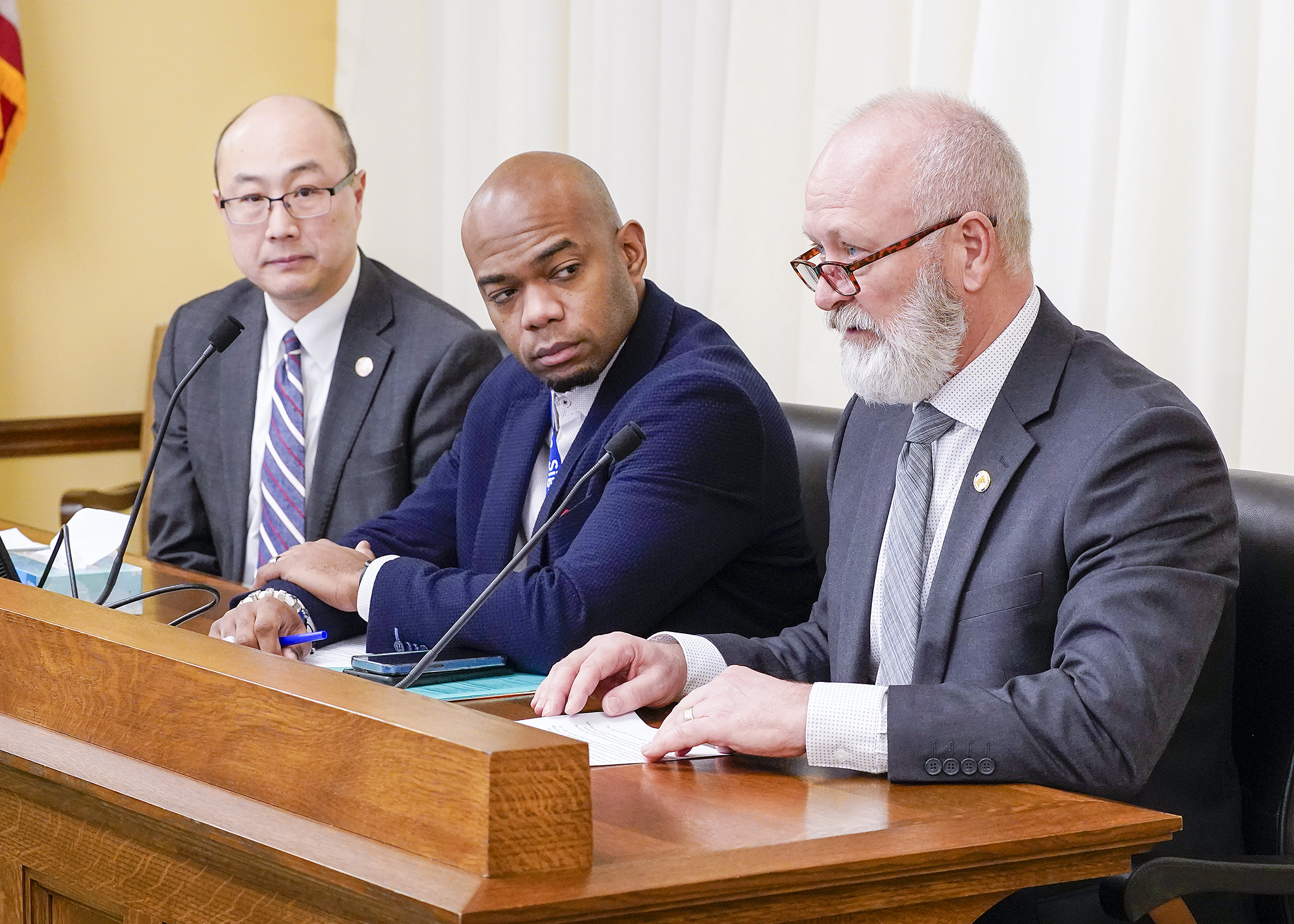Public safety panel approves ‘red flag’ firearm removal

In the aftermath of mass shootings, one often hears about the shooter … “We missed the warning signs.”
Or that the shooter had mental health issues … “but no one would listen.”
The so-called “red flag” measures in HF15 seek to reduce gun violence by allowing family members, law enforcement personnel or city or county attorneys to petition a court to have firearms removed from a person found to pose a significant danger to themselves or others.
“This is just another tool that I believe is necessary to help prevent some of the unnecessary deaths that are quite frankly preventable,” said Rep. Cedrick Frazier (DFL-New Hope).
He sponsors the bill, which the House Public Safety Finance and Policy Committee approved, as amended, on a party-line 9-6 vote Friday and sent to the House Judiciary Finance and Civil Law Committee.
Currently, 19 states and the District of Columbia have enacted extreme risk protection order legislation, according to Kelly Roskam, director of law and policy at the Johns Hopkins University Center for Gun Violence Solutions.
“These laws are narrowly tailored, respect constitutional rights, and are effective at reducing gun violence,” said Roskam, who likens them to domestic violence restraining orders.
She cited studies showing that Indiana’s extreme risk protection order law was associated with a 7.5% reduction in firearm suicides, while Connecticut’s law was associated with a 13.7% reduction.
Republicans said the bill raises constitutional questions and would deny firearm owners due process before removing their firearms.
Rep. Walter Hudson (R-Albertville) objects to allowing a court to issue an emergency extreme risk protection order without allowing someone to be able to face their accuser, opening up the possibility the process could be abused by people filing false claims. “This bill misses the mark,” he said.
A person petitioning a court for an order using false information or “with the intent to harass, abuse, or threaten” could be charged with a misdemeanor.
Hudson said a better way to deal with someone who is truly a danger would be for law-enforcement officers to obtain a 72-hour psychiatric mental health hold, a procedure that exists in current law.
From his time spent as an emergency medical technician, Rep. John Huot (DFL-Rosemount) said 72-hour holds are no substitute for an emergency extreme risk protection order because mental health holds are logistically complicated and cannot be put in place quickly enough.
Related Articles
Search Session Daily
Advanced Search OptionsPriority Dailies
Speaker Emerita Melissa Hortman, husband killed in attack
By HPIS Staff House Speaker Emerita Melissa Hortman (DFL-Brooklyn Park) and her husband, Mark, were fatally shot in their home early Saturday morning.
Gov. Tim Walz announced the news dur...
House Speaker Emerita Melissa Hortman (DFL-Brooklyn Park) and her husband, Mark, were fatally shot in their home early Saturday morning.
Gov. Tim Walz announced the news dur...
Lawmakers deliver budget bills to governor's desk in one-day special session
By Mike Cook About that talk of needing all 21 hours left in a legislative day to complete a special session?
House members were more than up to the challenge Monday. Beginning at 10 a.m...
About that talk of needing all 21 hours left in a legislative day to complete a special session?
House members were more than up to the challenge Monday. Beginning at 10 a.m...